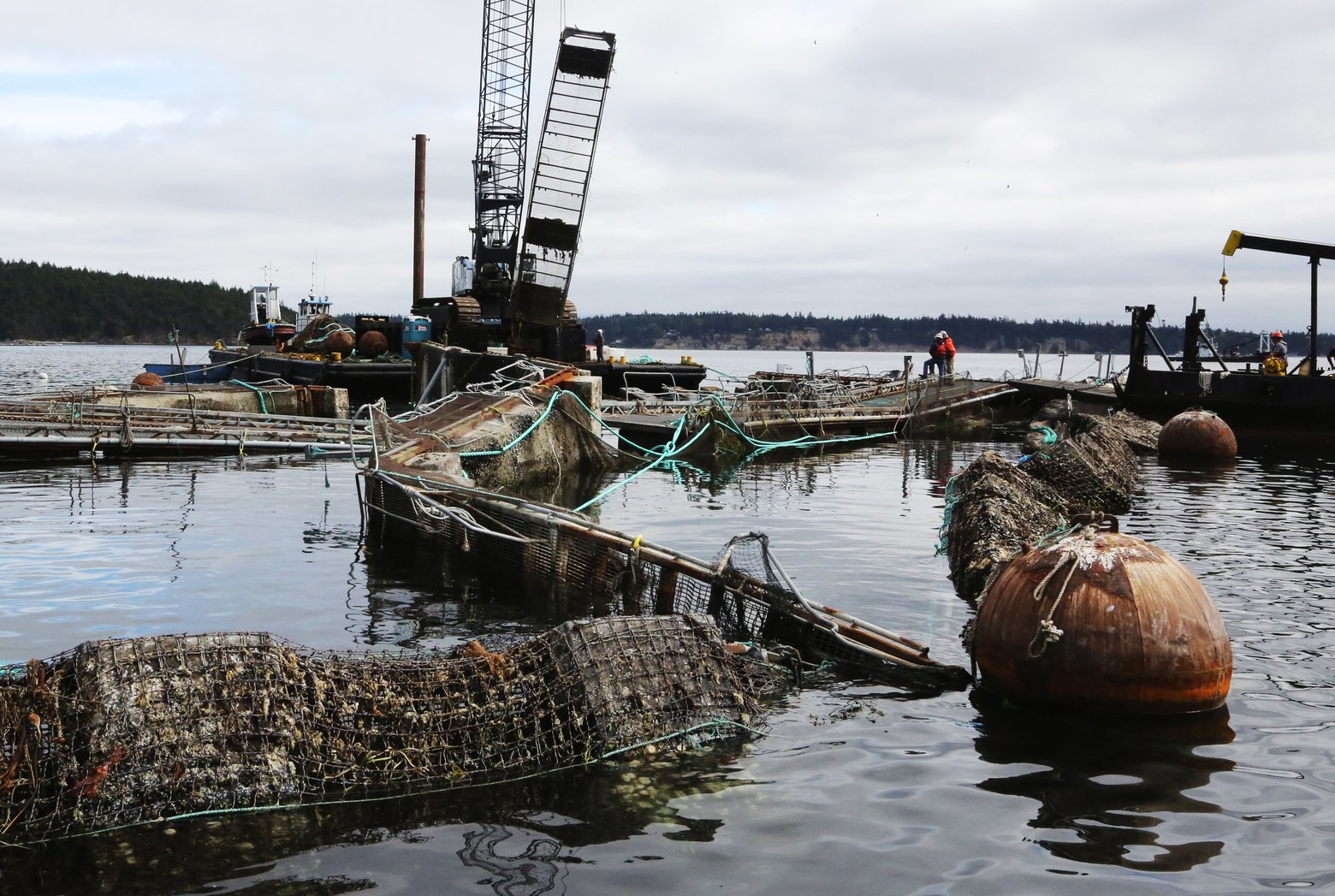- Blog
- Oceans
- Industrial Ocean Fish Farming
- Industrial Ocean Fish Farming — Bad for the Ocean, Fish, and People
Industrial Ocean Fish Farming — Bad for the Ocean, Fish, and People

Donate Now!
Your contribution will benefit Friends of the Earth.
Stay Informed
Thanks for your interest in Friends of the Earth. You can find information about us and get in touch the following ways:
by Hallie Templeton, senior oceans campaigner
The National Oceanic and Atmospheric Administration just celebrated “aquaculture week,” pushing industrial ocean fish farming as providing “a promising future” with its supposed economic, health, and environmental benefits. But it’s time that NOAA took off its rose-colored glasses and saw these operations for what they really are: underwater factory farms that pollute our oceans, threaten native wildlife, produce unhealthy seafood, and harm local fishing communities.
Just last month, a poorly maintained industrial net pen in Washington State operated by Cooke Aquaculture Pacific, LLC allowed for approximately 160,000 farmed Atlantic salmon to escape into Puget Sound and the Pacific. Shirking all corporate responsibility, Cooke’s initial response blamed the tides from a recent solar eclipse for the mangled nets. The company has since backtracked– no doubt because their own negligence and poor maintenance was reported to have actually caused the spill — and now says it’s “deeply sorry.” Despite the apology, Cooke’s pens still sit rusting, while the escaped Atlantic salmon feed, spawn, and otherwise compete for resources with endangered wild salmon in the Northwest. Cooke, which already owns several industrial ocean fish farms in Washington State, Canada, and Maine, is brazenly pushing to expand its fish farming operations.
Despite a clear moratorium on net pen permits from Washington Governor Jay Inslee in response to the spill, the Washington Department of Fish and Wildlife just issued a permit for Cooke to put one million new Atlantic salmon into another Puget Sound net pen facility. A recent inspection of that facility has also uncovered poor maintenance by Cooke , including corrosion and holes in the nets. Yet the seafood mega-corporation still intends to put a million salmon into the flawed facility.
Washington is the only state along the Pacific coast that allows these horrific underwater factory farms. The recent salmon spill is reason enough to make a change. Join us in preventing the next disaster by telling Washington to take a stand against net pens!
Industrially farmed fish threaten native wildlife and people. For many Native American tribes, the Pacific salmon are sacrosanct, and, in some cases, escaped fish are considered a pollutant. Yet the government and industrial ocean fish farmers are simply turning a blind eye.
As evidenced by Cooke’s massive salmon spill, these net pens are fallible and often spill farmed fish into the ocean. These escaped fish increase competition with native wildlife for food, habitat, and spawning areas, creating an environmental nightmare. Interbreeding can lead to genetic modification and degradation. And in the case of farming Atlantic salmon in Pacific waters, this non-native species also spreads new diseases and parasites, such as sea lice.
There is no barrier between the ocean ecosystem and the cages that contain massive farmed fish populations. Earlier this year, an industrial seafood farm in Hawaii found a dead endangered monk seal entangled in their nets. Factory fish farming allows for the free discharge of excess feed, feces, antibiotics, and chemicals into the water, which causes algal blooms and dead zones. The massive amount of fish in one space can attract and harm wildlife, which get entangled in farm nets, harassed by acoustic deterrents, or hunted by larger species.
Industrial ocean fish farming is wiping out smaller, forage fish populations in order to feed their carnivorous, farmed fish populations. Most industrially farmed fish are carnivorous; it generally requires three pounds of smaller fish to produce one pound of farmed salmon. To feed these growing populations, industrial ocean fish farms are overfishing and wiping out smaller, forage fish populations (such as herring, anchovy, and krill). In response to the serious shortage of fish meal, many manufacturers have started substituting genetically engineered feed, like corn, soy, and algae. This only leads to more environmental harm and a less nutritious fish for consumers.
Industrial ocean fish farming is looking to take over our oceans and hijack our wild seafood, leaving no room for local fishing communities, tribes, tourism, ship traffic, and recreational anglers. The time is now to stand up to these industrial net pen operations in our waters. Mega-corporations like Cooke have proven that they are willing to endanger the ocean and its inhabitants as long as it turns a profit. The problems with industrial ocean fish farming are rampant, and will only continue to spread if we don’t step in now.
Join us in telling Washington Governor Inslee to protect our water from industrial ocean fish farming!
Header photo via The Seattle Times.
